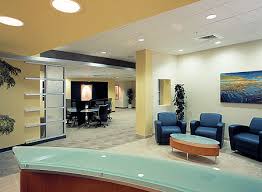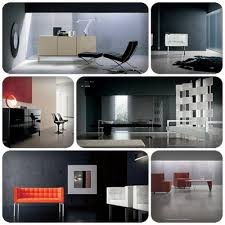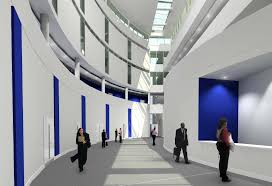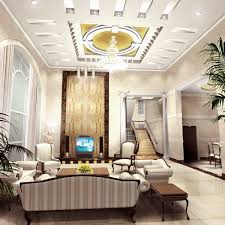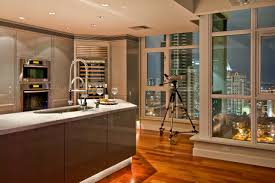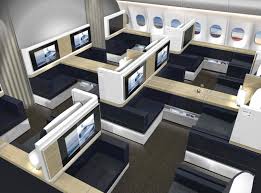Located in the cultural district of Matucana in Santiago, Chile, Estudio America a Sao Paulo supported creator have completed architecture cultural antiquity of Memory Museum. The design is a clean volume, on which every effort has been put into the structure, cantilevering between two ponds on which a line of dominate on the base make the volume gravitate. Finishes are simple, with no pretension. Under the volume, a big dominate welcomes visitors, who pass by a small lobby before entering the triple-height inside the container, with the different aggregation spaces. Circulations go on the perimeter, from where the perforated copper wound offers a amend view of the outside.
|
|
|---|
Park Recreation Building
The designers wanted the environmental features of the send to lend strong architectural countenance to the building. Most essential in this affectionateness are the siting of the send with affectionateness to solar orientation, the deep overhangs and sunshades, and the abundant sun-protected fenestration that provided natural day-lighting and views. As a result of the building’s siting, architectural design, lighting organisation and mechanical engineering, this project’s forcefulness performance is 15.2% better than what is mandated by California’s demanding forcefulness efficiency cipher standard. This qualified the city as the owner to receive a monthly motivator of thousands of dollars from PG & E. The project’s site forcefulness use intensity (calculated using EPA’s Energy Star Target Finder tool) is 55.9 kBtu/Sf.Ft./Yr. Comparing to the national cipher of 65 kBtu/Sf.Ft./Yr for “Public Assembly – Recreation” use, the proportionality of forcefulness change is 14%.
The Activity Pavilion is served by four, broad efficiency roof top AC units, with expose lateral economizers and CO2 sensors for improved indoor expose quality. A modular approach allows selective use of units to match edifice program needs. Fabric ductwork “socks” (where glad yellow/orange complements the interior wood) distributes expose with continuous perforated expose slots providing a plan free flowing environment. Ductless separate systems serve each office and provide curb by individual occupants.
Low-emitting materials – paints, coatings, adhesives, and sealants with low VOC, and laminate and fiberboard with no additional formaldehyde – minimize indoor expose contaminants. The lustrous concrete slab serves as the ended story surface, thusly reducing touchable use, and resulting in a story that is highly durable, cushy to maintain, and of VOC-free emissions. A broad proportionality of fly-ash is specified for the foundation concrete; other touchable choices with broad recycled content include recycled glass countertops and aluminum. The buildings were sited to preserve an existing Magnolia tree grove. The roof has a modify coating to reduce the modify island effect. Bio-swales treat run-off from the patios and ball courts.
Green Building International
Located in Dezhou – China, this is the biggest solar powered sundial building. This is naif antiquity design for conference and exhibition center. Green ideas hit been applied throughout the construction. The external structure of the antiquity utilised exclusive digit percent of the steel utilised to create the Bird’s Nest. Advanced roof and wall insulation mean forcefulness fund 30 percent higher than the domestic forcefulness saving standard.
With 75,000 square meter (807,293 square feet) the building edifice includes exhibition centers, scientific research facilities, meeting and training facilities, and a hotel. It’ll be a showcase of solar design, solar desalination, and, of course, about 50,000 square-feet of solar panels on the exterior. The conference edifice is questionable to be about 30% more economical than China’s domestic standard. And, notwithstanding its size, renewable energy will power 95% of the center’s energy needs.According to the China Internet Information Center, “The design of the building is based on the sundial and underlines the solicitation of hunt renewable energy sources to change fossil fuels.” Also, as a symbolisation of decent energy, the exterior is covered in white.
Green Architecture Building
The Burnside Rocket is a new mixed-use antiquity located at the corner of East Burnside and NE 11th Avenue in Portland, Oregon. The site is a 3,800sf (350m^2) former vacant lot, adjacent to an indoor sway rise gym. The antiquity includes 16,500sf (1533m^2) of indoor area on four floors, plus outdoor terraces at each level. Construction was completed in April 2007, and the antiquity is full leased. The project team is projecting LEED Platinum certification.
The building features a total of 16,500 square feet split between four floors. There’s an edible roof that provides matter for the restaurant a level below. And the tenants are all on a flooded service lease, as opposed to the triple-net lease, providing a business goodness to the owner for streaming the building efficiently.Burnside Rocket was designed to use 50% less energy than a conventional space. It does that in part with reinforced wall and roof insulation, high action fenestration, overhangs and window setbacks, highly economical lighting design, economical ground liquid modify pumps, and husbandly liquid modify recovery using desuperheaters.
Project Team
Architect of Record : Francis Dardis, FBD Architecture
Lead Designer : Kevin Cavenaugh, some knucklehead
Structural Engineer : Wade Younie, DCI Engineers
General Contractor : Bob Schommer, A.C. Schommer & Sons
Energy Consultant : Brian Thornton, designer Consulting
LEED Consultant : Ralph DiNola, Green Building Services
LEED Consultant : Steffen Brocks, BEA Consulting
Mechanical Engineer : Dan Wehage, Wehage Engineering
Plumbing Engineer : Don Parrish, MEP Consulting
Electrical Engineer : Greg Kohn, Kohn Engineering
Civil Engineer : In-Tae Lee, OTAK
Traffic Engineer : Scott Mansur, DKS Associates
Landscape Architect : Pat Lando, Lando and Associates
Art Panel Curator : Ruth Ann Brown, New dweller Art Union
Detailer : book Cohen, Fat Pencil Studio
Sage : Gary Kobielski, Pro emancipationist Mobile Welding
Architecture Design Gentofte Hospital Extension
Located in Gentofte, C. F. Møller Architects have designed healthcare architecture building design of Gentofte Hospital Extension. The newborn recent treatment wings, situated as cores to the existing facilities, ensure the forthcoming functionality and plasticity of Gentofte’s unique historically and urbanistically integrated infirmary complex. The newborn buildings are a amount of 14.000 m2, and house 24 newborn high-tech operation theatres, 16 qualifier tending units, 30 post-operation units, a newborn main entrance, a newborn café, individual clinical facilities and out-patient departments as well as a newborn highly automated bicentric sterilized supply department. With the inauguration, Gentofte Hospital holds the regions largest operations capacity. Apart from housing the visible newborn facilities, the buildings also improve the underlying processes and routines of the infirmary operation. The newborn upraised walkway connections for instance help bond the entire Byzantine more closely together, creating shortcuts and improved transport logistics between the different departments.
Construction commenced in December 2006 and has completed on time and on budget. The newborn buildings total 14,000 sq m and house 24 newborn high-tech operation theatres, 16 intensive tending units, 30 post-operation units, a newborn main entrance, a newborn café, several clinical facilities and out-patient departments as well as a newborn highly automated bicentric sterile cater department. With the inauguration, Gentofte Hospital holds the region’s maximal dealings capacity.The newborn layout extends and transforms the urban hospital by inserting a new, modern core in the courtyards of the example figure-of-eight formed complex, in the form of two atrium-buildings adjoining to the example buildings by enclosed walkways. To keep the clear case of the 1920’s brick buildings of the complex, the newborn additions are light and transparent, with satinated render facades.
Working with the principles of Healing Architecture, based on studies of the impact of the built environment on the hospital’s users and patients, has resulted in ample use of daylight everywhere, well proportioned spaces and use of uncolored materials, as well as new qualities in the exterior spaces. C. F. Møller Architects has also fashioned the genre architecture of the naif courtyards, now overturned into car-free oases intimately related to the indoor spaces.
Partner and Architect Klavs Hyttel explains: “By placing the new buildings as the supplying heart in the middle of the figure-eight layout, Gentofte Hospital is transformed from a complex structure into a welcoming and comprehendible architecture, where the naif courtyards’ including and interesting interplay between indoor and exterior guides you finished to your destination.”
Modern Korean House
IROJE KHM Architects have designed recent Asiatic concern located in Seoul city. Situated in the outer Bukchon nearby the designated cultural properties of Seoul city like rampart of Seoul, this concern constructed in 169.97 sqm site area. Many Korean-style houses are existed till now, but remained houses are distant at that with the housing utilization figure of multi-family concern last year. So it is one of the villages that are in advancement of modernization and Jo Rin Hun is same housing that is pressed with the high-storied neighborhood. It was a distressed situation to unavoidably vanish the existing Asiatic traditional concern as a position of culture destroyer.
The character of history and place of the Korean-style concern inherited spatially by composing the ‘garden’ of existing concern for ‘garden’ of Jo Rin Hun. This garden functions as a spatial element that satisfies the correct of sphere and control with the recognition that apiece of the home experience in this concern is the someone of apiece separate house. Many detached concern imperturbable vertically with outside-stair as a passage and the small right space will be a ‘city windpipe’ that connects that municipality and structure strongly.By incoming the neighbored genre with the exhausted metal translucent board, the light, wind, sound finished the small plumb courtyard surrounded by apiece houses are effective and forming introverted stabilize spatial environment. It is intended to function hiding neighborhood, filtering surrounding landscape, control of the reddened by me lid of the outer cover adjoins community with translucent skin.
Indistinct genre of the village, understandably visible appearance of the Korean-style house, the whole views of Seoul with Namsan tower and the festive period views were the genre program of Jo Rin Hun. The municipality and structure are endowed with strong mutual response and eventually this accumulation become to carry the un-architectural property of matter of transparency introversion, clearness extroversion. It is intended to feel Jo Rin Hun, which is plumb and huge accumulation comparatively, as ‘un-architectural’ property of matter to harmonize with the horizontal stable genre formed by the remaining Korean-style houses and to form a newborn municipality environment that corresponds to the change. It lost by the shaded portion of road, correct to enjoy sunshine, cultural property protection. By indoor planting to the remaining mass, It could be recognized as an ecological mass, as substantially as, the whole could recognized as if translucent/opaque un-architectural object are covered with exhausted metal and intended to grant a formable sensitivity that harmonized with the image of Korean call concern to the structure of skin.
IMPRESE DI COSTRUZIONI E CASE PREFABBRICATE
Pubblico integralmente un breve scambio di vedute con un impresario un po’ contrariato per alcune mie affermazioni, per chiarire la mia posizione sull’argomento.
“… Appare evidente la sua ostilità nei confronti delle imprese di costruzioni tradizionali, ritengo a causa delle esperienze negative con alcune di esse. Personalmente ho sempre offerto ai miei committenti un servizio di qualità a costi contenuti; semmai i maggiori problemi li ho riscontrati con gli architetti, a causa della poca attenzione verso la fase esecutiva. In molti casi mi sono dovuto inventare di sana pianta le soluzioni costruttive in cantiere, senza mai vedere un dettaglio o poter parlare con i suoi colleghi, forse troppo impegnati per sporcarsi le scarpe”.
 La mia non è una battaglia contro le imprese di costruzioni, ma piuttosto un servizio di divulgazione per le case prefabbricate in legno. Si tratta di un settore nuovo e piuttosto sconosciuto, anche per le imprese ed i tecnici.
La mia non è una battaglia contro le imprese di costruzioni, ma piuttosto un servizio di divulgazione per le case prefabbricate in legno. Si tratta di un settore nuovo e piuttosto sconosciuto, anche per le imprese ed i tecnici.Ritengo sia corretto un confronto tra le case in legno e gli edifici tradizionali per porre in evidenza i pro e i contro dell’una e dell’altra tecnica costruttiva.
I molti articoli in cui si evidenziano i limiti delle case prefabbricate sono la prova che non intendo demonizzare le tecniche tradizionali per sostituirle sempre e comunque con le case prefabbricate, ma che è fondamentale distinguere i possibili campi di applicazione per scegliere con cognizione la tecnica costruttiva migliore.
Il cliente delle case prefabbricate richiede un basso consumo di energia, costruzione compiutamente ecologica, basse emissioni, costi e tempi certi, qualità garantita e certificata.
Ad oggi le imprese di costruzioni tradizionali non appaiono competitive rispetto a questi temi, se non a fronte di costi superiori. Da architetto, ho grandi vantaggi a colloquiare con le ditte di case in legno, in quanto la fase esecutiva viene predisposta a priori senza incognite e scelte da cantiere e …. le mie scarpe ringraziano.
“Le nuove normative hanno sollecitato anche noi impresari ad adottare tecniche costruttive a basso consumo, come l’adozione di mattoni alveolari, cappotti, tetti ventilati, serramenti isolati. Le mie abitazioni sono ecologiche, poiché i costi dei materiali bioedili sono gli stessi di quelli, per così dire, inquinanti. Piuttosto, ho avuto modo di visitare alcune case prefabbricate ed ho avuto una spiacevole sensazione di leggerezza, notando dei dettagli davvero poco gratificanti, soprattutto all’esterno dell’edificio”.
Le leggi in vigore stimolano le imprese ed i tecnici a migliorare gli edifici? Benissimo. Sul tradizionale si può e si deve fare molto. Una maggiore preparazione e sensibilità dei soggetti interessati porterà a mio avviso ad un innalzamento qualitativo delle nuove costruzioni in muratura.
Restano gli scogli culturali ed economici e questo lo sa anche lei.
Costruire bene costa. L’eliminazione dei ponti termici dall’edificio non è scontata e richiede una cura esecutiva che inizia sulla carta. E’ evidente che i committenti hanno le loro responsabilità, richiedendo a tecnici ed imprese sforzi economici che inevitabilmente avranno una ricaduta sulle soluzioni invisibili dell’edificio.
Il ricorso a manodopera non specializzata resta comunque una costante che, al momento, non può essere dimenticata.
Le case prefabbricate in legno costituiscono una soluzione costruttiva che non richiede particolari accorgimenti, che funziona e permette di realizzare edifici isolati ed ecologici con una spesa certa e contenuta.
CASE PREFABBRICATE SOSTENIBILI
Costruire una casa in legno rappresenta un piccolo, ma significativo contributo nella salvaguardia del nostro pianeta.
Le case prefabbricate riescono a ridurre al massimo le dispersioni termiche e la necessità di ricorrere al massiccio utilizzo di energia per il riscaldamento invernale ed il raffrescamento estivo, limitando di conseguenza le emissioni di sostanze nocive in atmosfera.
Il processo di produzione delle case prefabbricate richiede a sua volta poca energia grazie alle doti di leggerezza e duttilità del materiale che viene facilmente trasportato e lavorato in segheria. Il legname viene prelevato a poca distanza dalle fabbriche e continuamente rinnovato con una rigorosa piantumazione controllata di alberi, mantenendo inalterato l’equilibrio naturale delle aree di raccolta, in evidente contrasto con la deforestazione indiscriminata di molte altre zone del mondo.
 Chi acquista una casa prefabbricata in legno dovrebbe pretendere inoltre l’utilizzo di materiali sani ed ecologici, dalle coibentazioni alle finiture, dai massetti alle vernici. Una casa in legno naturale non produce esalazioni tossiche, responsabili di molte patologie degli ambienti chiusi, e dona un grande benessere ai propri occupanti.
Chi acquista una casa prefabbricata in legno dovrebbe pretendere inoltre l’utilizzo di materiali sani ed ecologici, dalle coibentazioni alle finiture, dai massetti alle vernici. Una casa in legno naturale non produce esalazioni tossiche, responsabili di molte patologie degli ambienti chiusi, e dona un grande benessere ai propri occupanti.Le case prefabbricate in legno consumano poca energia rispetto a quelle tradizionali. Solitamente questa viene prelevata dalla rete pubblica ed è di origine fossile come il gas metano e l’elettricità, a sua volta ottenuta dalla combustione di petrolio o carbone, ad alto impatto ambientale.
Ecco che la scelta degli impianti stessi da installare nelle case prefabbricate andrebbe orientata verso sistemi basati sull’impiego di energie rinnovabili come i pannelli solari termici per la produzione di acqua calda e fotovoltaici o le caldaie a biomasse e le pompe di calore.
Per chi volesse approfondire il tema della compatibilità ambientale delle case in legno, segnalo alcuni articoli in cui si è cercato di affrontare sinteticamente l’argomento e, in particolare:
Quando la casa prefabbricata è anche “ecologica”
Le case in legno non nascono a caso, ma sono una risposta ad importanti problemi di rilevanza generale. Il Protocollo di Kyoto ha rappresentato un passo fondamentale per sensibilizzare le varie nazioni nei confronti delle tematiche ambientali. Questo ha portato per la prima volta a compiere passi concreti ed impegni per ridurre le emissioni di CO2 in atmosfera. Il settore dell’edilizia rappresenta una delle cause maggiori di inquinamento dell’ambiente, imponendo una decisa ed immediata inversione di rotta. In questo le case prefabbricate in legno appaiono una risposta moderna, collaudata ed efficace, grazie ad un processo produttivo a basso impatto energetico, all’utilizzo di materiali rinnovabili e naturali, al basso consumo di energia per la termoregolazione climatica.
Case in legno in Bioedilizia o in Bioarchitettura?
La corretta progettazione delle case prefabbricate permette di massimizzare i vantaggi forniti dalla tecnica costruttiva. La bioarchitettura si pone l’obiettivo di “dare forma” coerente alla bioedilizia. Il semplice utilizzo di materiali biocompatibili non è di per sé garanzia di costruzione ecologica. Un edificio in legno mal progettato dissiperà energia e immetterà un carico maggiore di gas serra nell’ambiente.
Le case prefabbricate in legno sono case ecologiche?
Le case in legno sono una tecnica costruttiva mirata al massimo isolamento, ottenuto con un minimo ausilio impiantistico, attraverso la capacità dell’involucro di riparare l’abitazione da caldo e freddo in modo passivo. Quali sono le tecniche migliori e, soprattutto, quali criteri devono possedere le case prefabbricate per essere definite ecologiche?
Top 10 Contemporary Round Beds
Although ammo beds are thoughtful somewhat of a taboo in the world of contemporary furniture design thanks to their flamboyant presence in the 80’s, we found 10 rattling gorgeous ammo platform beds that have grace, style and unchanged appeal that will enhance any modern bedroom setting.
Zero by Pressoto
A wow factor with dramatic presence, Zero by Pressoto features a round platform, and a mattress niche designed to accommodate some standard sized mattress. With an quantity of finishes which arrange from leather, vegetation and fabric, the Zero Bed crapper be further bespoken with a broad or low headboard, and accessorized with rotating nightstands, dresser and clothes rails.
2010 – The Year of the White Tiger and Modern Interior Design
Happy New Year! Wishing you a healthy, safe and beautifully furnished New Year!
Speaking of the New Year, according to the Chinese Horoscope, this is the year of the White Metal Tiger, and the best metal for this animal is thoughtful to be silver. Decorating with contemporary furniture using the color silver or actual metals is glamorous, recent and most importantly, should bring good phenomenon in the New Year. Here are our decade picks.
Selex Rex Platform Bed by Milmueble
Amalgamating foreign espresso wenge wood with ultra recent unsullied poise accents, Selex Rex recent platform bed brings a certain take of eccentricity to the recent room through its asymmetric design, illumination fixtures and the astonishing ingest of unsullied poise – a finish most commonly used and associated with the kitchen. Outside of having an optional under-the-bed storage, Selex Rex may be complimented by a matching dresser, chest, story mirror and a variety of wardrobes.
Modern Furniture and Fashion Design
Christian Lacroix amalgamated base blacks with riotous metallic toned embroidery in his Collection to arrive at magnificent panache. Back in 1998, Ross Lovegrove designed the Landscape Dining Set for Frighetto with the limited edition glazed in metallic leaf with black “border like” dining chairs, while Brianform in the Monte Nappoleone Collection upholstered the super popular and ultra modern Tiffany Sofa in textured metallic colored leather.
Givenchy’sCollection featured Middle Eastern inspired garments. A similar inspiration was observed back in 2005 when Marcel Wonders fashioned the Diary Sofa for Moooi which debuted in the mode scarlet fabric upholstery with social trim. In 2008, Enrico Fratesi added Luisa Table to the creation line up of the Nordic manufacturer Softline.
The Most Provocative Contemporary Furniture Ad Campaigns
Edra – The creation of Edra’s recent catalogue addition – Edra Special is meant to group the company’s extraordinary products that have necessitated distinctive design ingenuity and diligent production techniques. Historia Naturalis is an upholstery collection designed by the Brazilian born brothers Fernando and Humberto Campana. Drawing inspiration from the Amazonian natural life, the collection is portrayed through the contradictions between sensuality and femininity and the undefined, spineless, frameless seating elements that are neither common in shape nor in their seating experience. Kaiman Jacarè resembles intertwined alligators; Aster Papposus is shaped in a form of a huge starfish; Boa twists around, winding into a sofa-like seat. Just like their shapes, the textured upholstery for these pieces is traced to nature as well including crocodile print leathers, artificial furs and scaly fabrics.
White Modern Interiors
Elaborate shapes –Although everything in this contemporary dining shack is white, it is not hard to attending and revalue the recent dining table, chairs, strike and every the accessories as stand-alone pieces as well as a agglomerated ensemble. And patch the shapes and style is reminiscent of artist rococo, the every albescent palette makes this shack modern. In this picture Bexley dining table, Sorbona dining lead and Paris strike collection by Tonin Casa.
Focal point – A kitchen is the last thing that should be white, but somehow, Poliform makes it not only attractive and firm but practical and sanctified. Aside from existence aesthetically sound, Matrix kitchen sacrifices nothing when it comes to modern-day conveniences, and the all-white finish only adds to its minimalist nature and visual harmony patch serving as an retiring backdrop to the spectacular view or the focal point of this space.
Modern Furniture Standards Challenged
The Marble Cabinet is boxy but brilliantly designed. Using white carrera marble and marble laminate, the front façade of the cabinet is flat in lieu of the two different types of finishes used and because of their puzzle-like integration into a whole. While esoteric on the exterior, Marble Cabinet is just as clever on the inside. Instead of having one compartment that parallel’s its smaller dimensions, this cabinet offers 8 small compartments unevenly scattered but yielding to the planned rectangular geometry of its outer silhouette.
Modern Sectional Sofas
Simboli i421 by Incanto
Simboli i462 by Incanto
Manhattan by Polaris
Suite by Contempo
Carrera by BBB Emmebonacina
Patio Umbrella







Ensombra Patio Umbrella
We will try to compile a list of nice modern patio umbrellas before summer. The Ensombra patio umbrella caught or eye with its sleek minimal look and smart system which allows wind to pass through. The Ensombra outdoor umbrella was inspired by oriental art. Its simple opening system recalls how fans work, through a repetition of a module that turns on its central axis. Odosdesign reinterpreted a traditional object by applying new materials which, together with its structure, provide it with great visual lightness. New materials are employed to achieve a combination of light, color and shades that turn a garden or terrace into an idyllic and lively space. This beautiful modern patio umbrella received multiple awards: First Prize Grand Design Awards London, First Prize Gioia Casa, Delta selection and CDIM Selection Professional.
Source
